
Below, the conclusion to Jock Elliott's series featuring the personal solutions of 13 champions with regard to dealing with match pressure. You may want to read Part I and Part II.
Lones Wigger, Smallbore Rifle
It’s pretty complicated—this subject of dealing with pressure. I’m a precision shooter and have learned to excel in that discipline. You’ve got to learn to shoot the desired scores at home and in training. And once you’re capable of shooting the scores, you may not shoot the same way in the match because of the match pressure. As a result, it takes 3-4 years to learn how to shoot, and another 3-4 years to learn how to win—to deal with the match pressure. It takes several more years to learn how to do it when it counts.
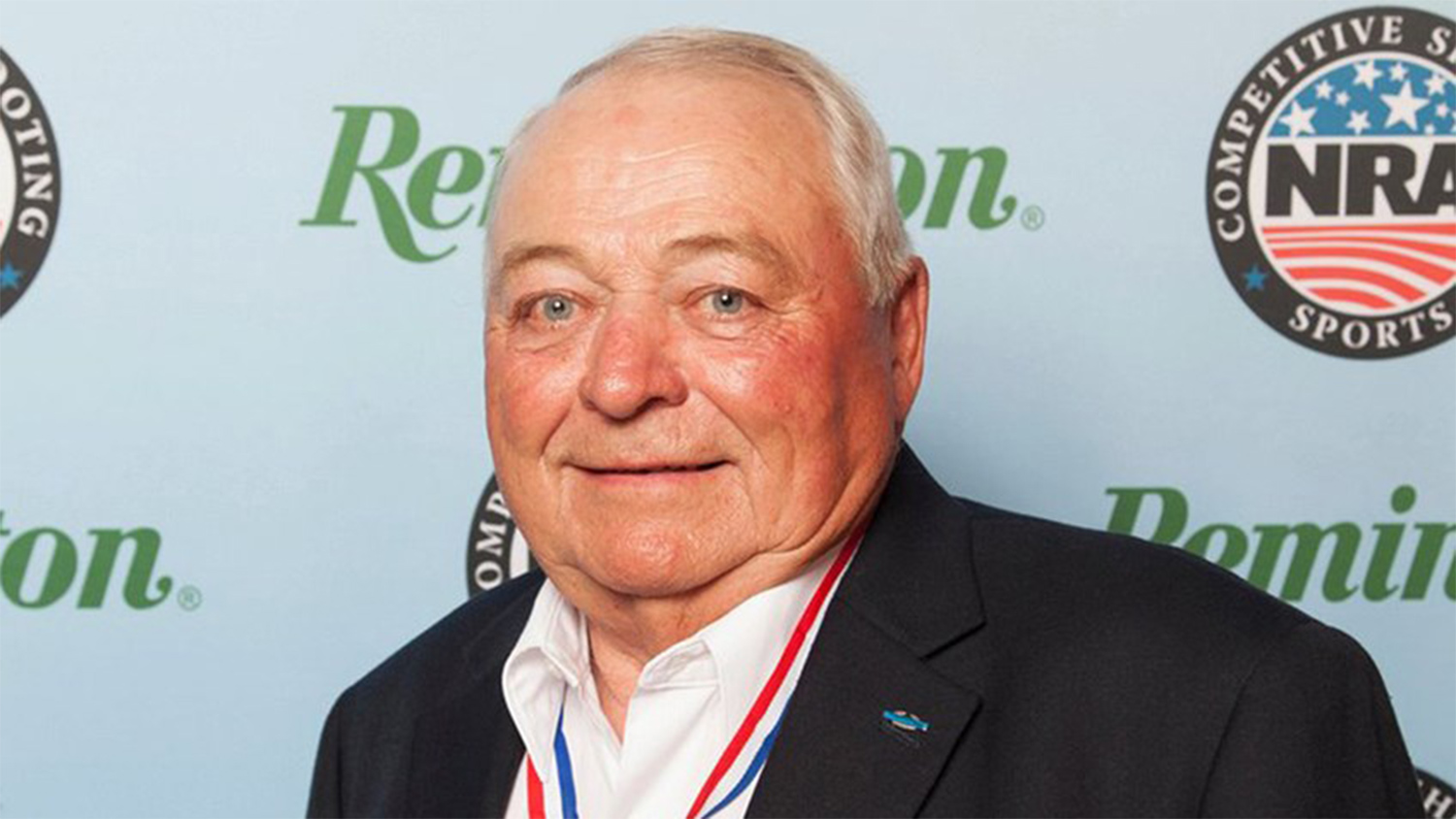
To win, there are several things you have to learn how to do. You have to do it from within. You have to learn how to train just as if you were in a big competition. You work on every shot. You have got to learn to treat it just like a match—to get the maximum value out of every shot. You have got to use the same technique in practice and in training. A lot of shooters have a problem because they change their technique from practice to the match. In competition, you work your ass off for every shot. You have to approach the training the same way.
A second way to combat pressure is to shoot in every competition you can get into so that you become accustomed to it. The third technique is preparation. Before you are going to shoot in a big competition, train hard to do everything you can to raise your scores. So when you’re in the match, you know that you have done everything humanly possible to get ready for the competition. If you have self-doubt, you will not shoot well. You have to have the will to prepare to win.
When Gary Anderson was a kid, he couldn’t afford a gun or ammunition. He had read about the great Soviet shooters. With his single shot rifle, he would get into position, point that gun and dry fire for hours at a time in the three different positions. He had tremendous desire. He wanted to win and he did whatever he could to get there. When he finally got into competition, he shot fantastic scores from the beginning.
A little bit of psychology: You picture in your mind what you want to do. You have to say, OK, I’m going to the Olympics and perform well. Picture yourself shooting a great score and how good it feels. You are training your subconscious mind. Once you get it trained, it takes over. A coach taught me to visualize the outcome, and it worked. Eventually you train your subconscious and it believes you can win. At first I didn’t know about teaching the subconscious to take over, but now I do it all the time. And it certainly worked for me at the 1972 Olympics. What it really takes is training and doing the same thing in training as at a match. If you are “just shooting,” you are wasting your time.
Brian Zins, Precision Pistol
For me, it’s all about the shot process. There should be nothing you do different from shot to shot; whether you’re shooting well or shooting badly. Every good shooter develops a process. The difference between a good shooter and a bad shooter is consistency. From the time you decide you’re going to shoot a shot until the shot goes off, everything has to be the same. As long as you maintain your process, you’re fine.
From the time the gun leaves the bench, everything you think, do and see until the shot goes off should be the same. If anything interferes with that, you abort and reset. The ability to shoot well comes from dealing with each individual shot. Once you develop a shot process, it’s hard to forget it. Most people don’t consciously develop a shot process or set out to develop one. When I began shooting, I had to actually write down a process. I don’t do the same process now, but it certainly burns into your mind the notion that you need to have a process, even if it changes over time.
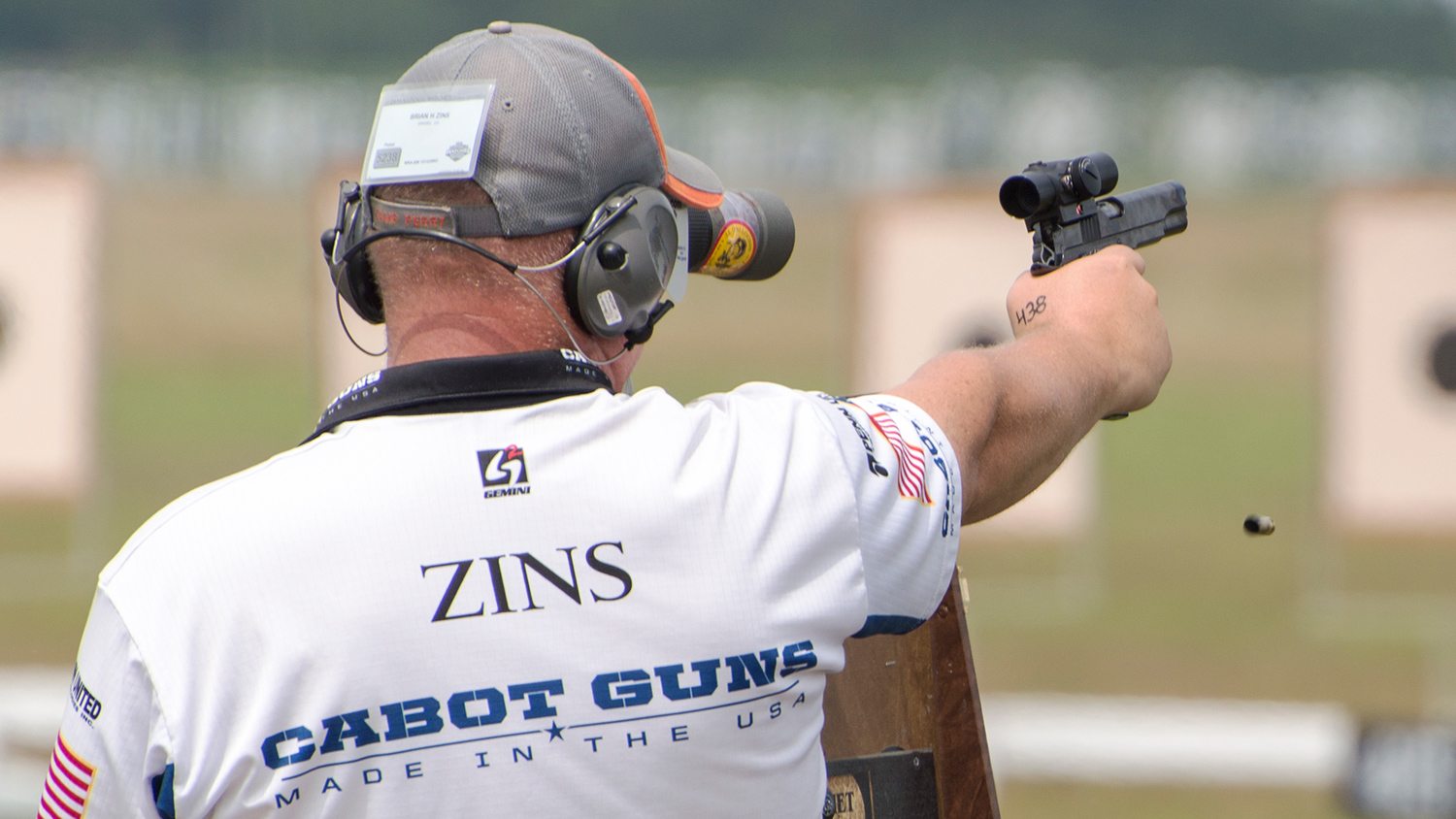
I don’t get nervous before a championship match. The first time someone is knocking on winning the nationals, they are going to feel a little anxiety because it’s something they haven’t done before. We’re not changing the course of history, so if you’re not having fun, there is no sense in doing it. There is no sense in getting stressed about shooting a pistol match. I avoid the whole issue of pressure by getting into my shot process. I focus on each individual shot and each individual string of fire.
Bruce Piatt, PPC, Action Pistol, 3-Gun
First of all, I think there are two kinds of pressure. If I’m shooting Steel Challenge where it is very fast and reaction time is important, I actually need to be a little nervous to go fast. That little bit of nerves or excited energy is good and is acceptable, so long as it is not too much. Action Pistol and Precision Pistol, on the other hand, are slower and based mostly on accuracy. Being nervous in those competitions is going to ruin your day. It will affect you mentally and physically. Being nervous means you’re going to have tremors. Nerves will therefore throw off your accuracy and timing.
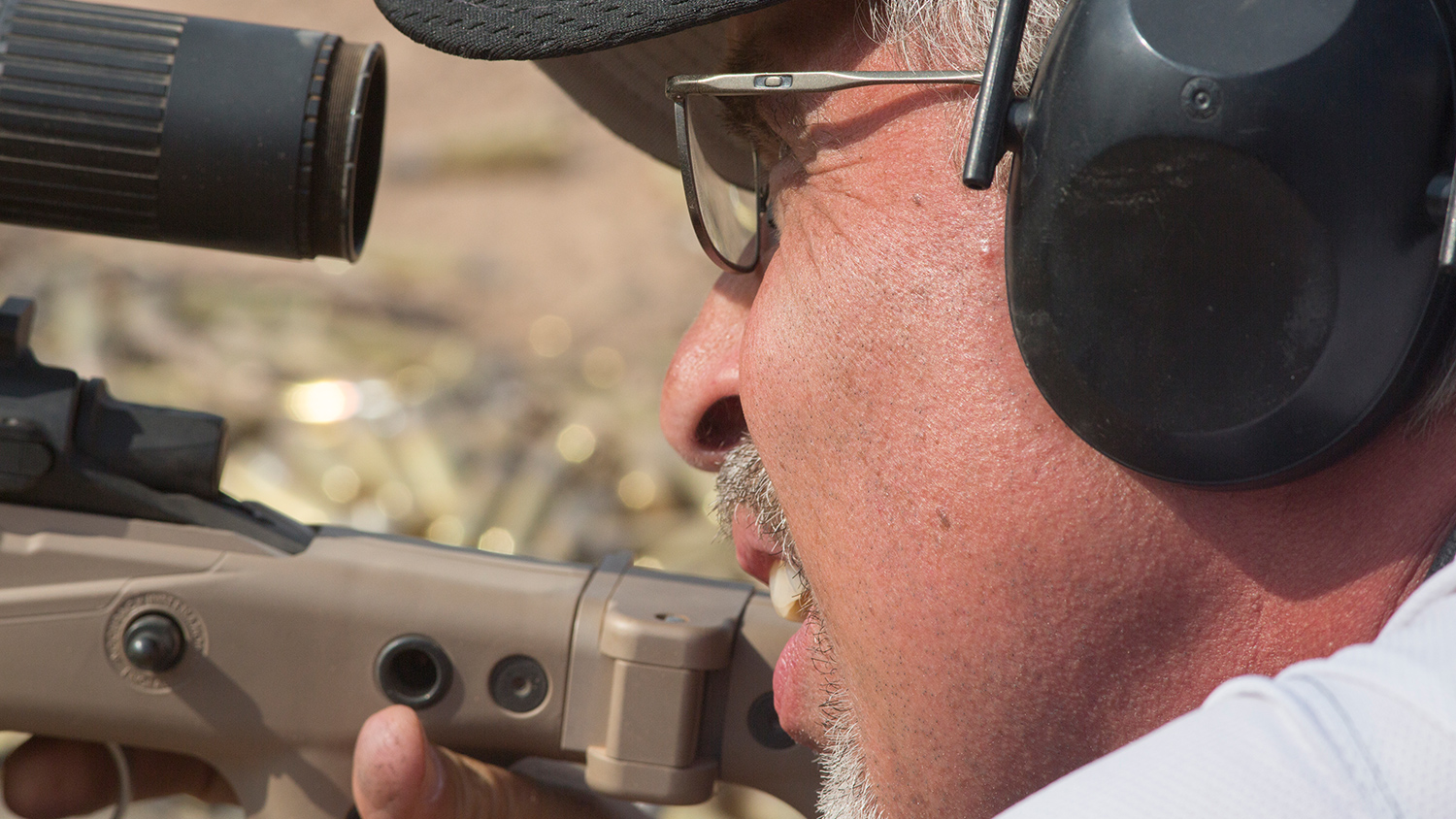
Here’s how I deal with it. On match day, I expect to be nervous. The trick is to monitor yourself and not let it overcome you. Some people, especially new shooters, will have a tremor in their hands and will panic, making themselves more nervous. Know that it is coming; accept that it is here; and deal with it. Before shooting, I can feel it coming. I often breathe deeply, which does help some. I store my stress in my shoulders, so I do some shoulder rolls, look at the leaves and trees and think what a nice day it is—anything to get my mind off of the match, if only for a moment. If you focus totally on the shooting all day long, you’ll burn yourself out. The only time you have to focus is when you are on the line. At the Bianchi Cup, I take a break and give myself a mental vacation between rounds.
When I practice before the match, that’s when I think about the technical parts of shooting like the grip or the stance. I’m not going to change anything in the middle of the match just because I’m nervous. The gun is going to wobble some and the sight picture won’t be perfect. Just do the best you can. Mentally, just watch yourself shoot. Trust yourself to just let it happen. When I’m shooting well, it’s like I’m watching my gun go off by itself with no mental input.
As far as wobble: You’re on the target more than you’re off; you just have to have the guts to press the trigger correctly. When the wobble is at its minimum, that’s when I start my trigger squeeze. W. Timothy Gallwey’s book The Inner Game of Golf deals with the mental aspects of the game and relates almost exactly to what we do as shooters. I would recommend this reading to anyone.
Carl Bernosky, High Power Rifle and Action Pistol
I always get excited when I am going to a match, but preparing for that is part of the training. If I train well, I am comfortable at the match, and I am going to do okay. I’m actually a lot less nervous after I have fired the first shot. The uncomfortable zone for me is waiting to shoot; shooting is more comfortable.
When the competition begins, I just go through my routine. I do the same routine in practice as I do in a match, so that when I get to the match I have already rehearsed it all. For example, when I’m practicing for Bianchi, I have everything set up the same as at the match. I try to put myself in that situation as closely as I can and visualize myself shooting the score I need to shoot.
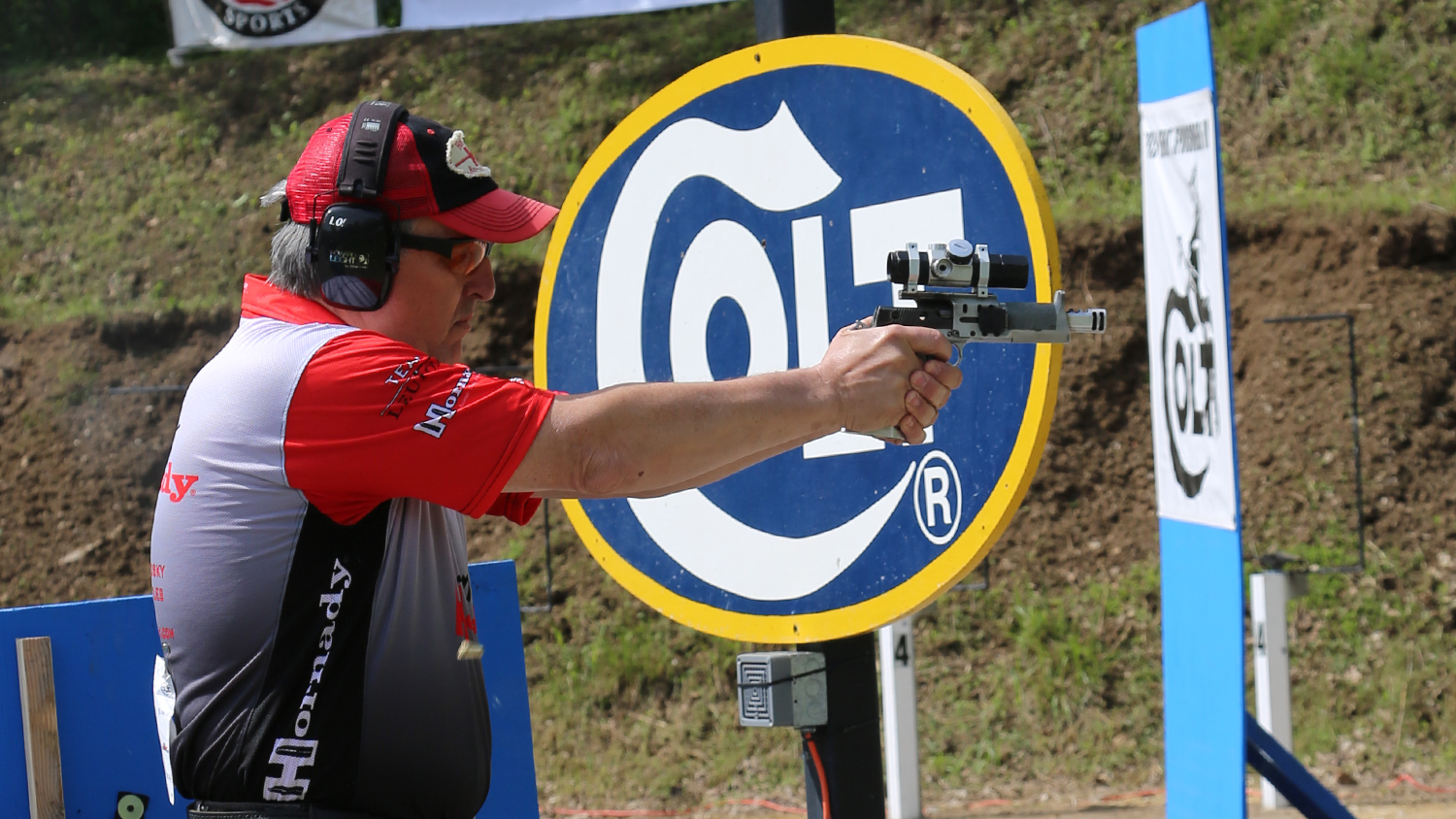
I do the same thing for high power. I try to visualize myself there, shooting the score I need to shoot. If I will be shooting a target with a spotter on it, that’s what I will shoot in practice because that’s what I will see at the match. I have trees close to my practice range, but at the National Matches there are no trees around. As a result, the team match before Perry is an opportunity to stand on the range, fire 50 shots and become accustomed to the environment there.
For standing shooting, I have a routine that takes me right up to where the trigger goes off. When I see what I need to see in the sights, the gun goes off. I try not to pay attention to the gun moving and all the self-talk that comes at you. When I see the sight picture that is correct, the gun should go off. The worst thing you can do in a match is be cautious. Being cautious makes you over think. You want to be in your match mode in practice and in your practice mode at the match. Your brain is what makes you nervous, and if you have accustomed your brain to what you are doing, that helps to minimize pressure.
In summary: Deep breaths, shoulder rolls, monitor yourself, feel it coming, and don’t panic when it comes. And don’t stay focused the entire time you are at the match. Take opportunities to get your head completely away from the match.
Ernie Vande Zande, Smallbore Rifle
It’s a complex issue. I’m 63 right now, I started shooting when I was 11, followed by a college team, then the Army Marksmanship Unit at Fort Benning and later shot for the Army on the reserve shooting team. I retired from active competition at 44 or 45.
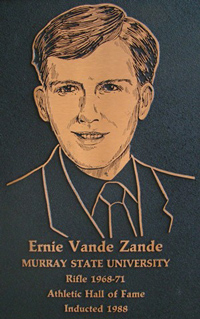
Back in high school, I felt that pressure was normal. I started noticing in speech class that sometimes I got pretty nervous, but I didn’t get nervous every time. Over time, I realized that I became more nervous on days when I gave a speech when I felt less prepared. I started thinking about that in relationship to my shooting. It was the same kind of thing: At those times when I wasn’t prepared, I felt more nervous.
Then I thought about my shooting. Why was I prepared one time and not the next? I started studying what I was doing to get prepared, or not. I learned pretty early to prepare, to look at what I was doing, so that I would feel more confident. That was a really good lesson.
When you’re shooting and you can tell that you are close to a record, you need to focus on those things that got you to where you are. When people have extreme issues with pressure, it’s when they allow their focus to shift to the outcome, rather than doing those things that lead to good performance. When our thoughts shift to the outcome–things that have essentially nothing to do with creating the good outcome, that’s when nerves can get the better of us.
With shooting, we have the luxury of stopping and starting over if we can catch ourselves varying from that high level mental focus. It’s a high level technical focus: How does the gun fit, is the position set up correctly or am I using muscles? The other is the mental focus: What you’re focusing on that creates the good shot, rather than focusing on the trophy.
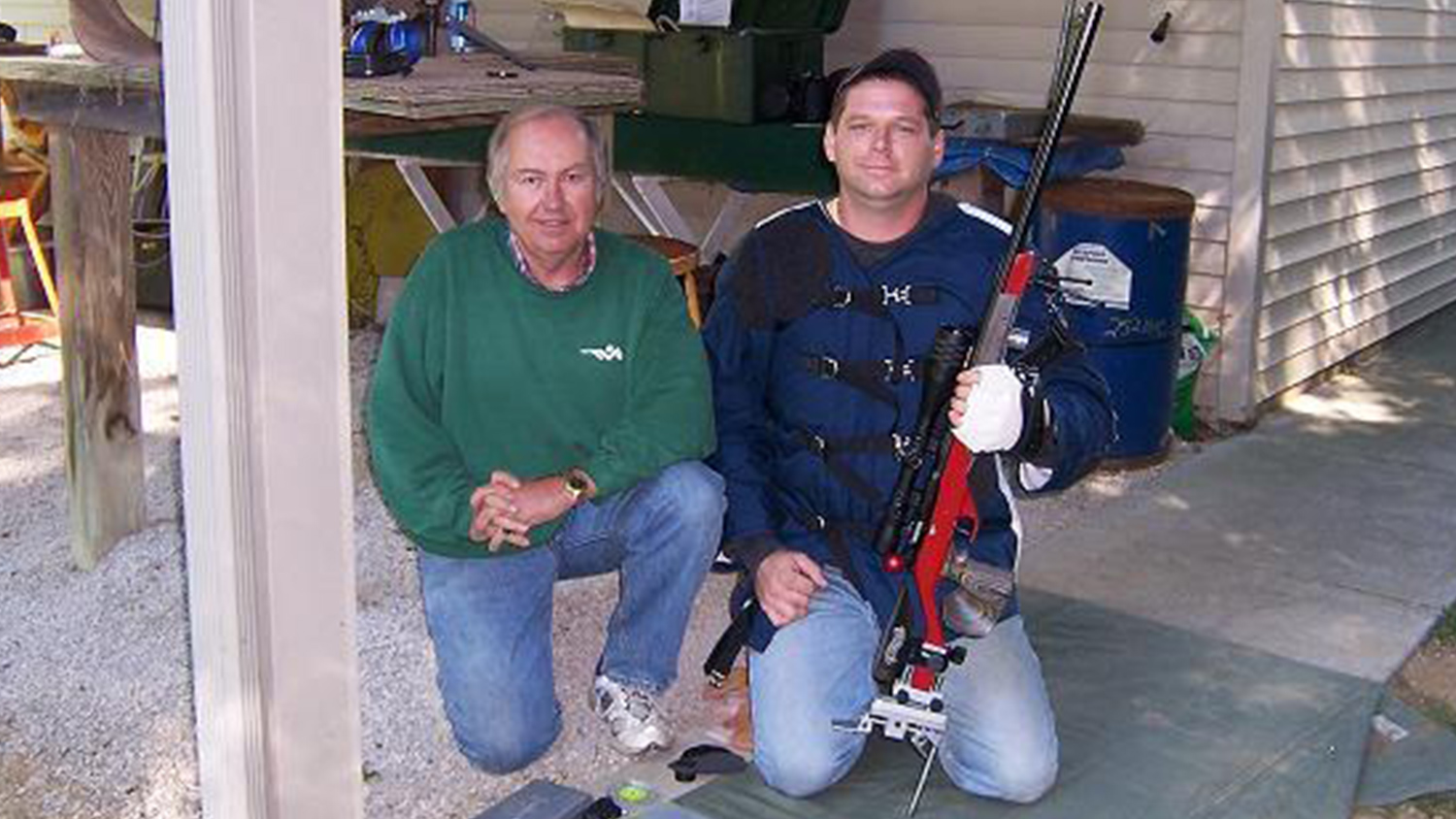
When you can feel either technically or mentally that your high level focus is starting to decay, you have to detect that you are moving away from a high level focus. What do you do about that? It takes self discipline. We have time during competition when we can just dry fire shots. I stop and take a little mental vacation. I think about something else for a few seconds, totally away from what I am doing, to relax myself technically and mentally.
The things that I think about take me totally away, like a beach in Maui. I’m getting totally out of the situation I’m in. After I take my micro vacation, I start analyzing. Define the issue:
1) Am I making a mistake technically or mentally in what I am doing?
2) Am I leaving something out in my process that I normally do? From that analysis, then I ask: What do I need to do to correct this issue? Then I come up with a little plan to implement the correction. I dry fire three to five shots and I visualize implementing the new plan of doing things right. It’s a rehearsal in my mind before I do the dry firing. Then I dry fire five shots to get my technical level back up.
The last thing is you load your gun and shoot a perfect shot.
There is something else that I do that is called contingency planning. I’m off the range when I’m doing this, and I’m identifying a list of things that could you wrong. If item ‘A’ happens, what is the best, most logical thing for me to do to get back into the competition at a high level? If it actually happens, then you implement the plan that you have already thought out. You know what to do and you do it. It takes a lot of discipline to learn to do this and do it well.
I would be a liar if said I never thought about the outcome. It is normal for our focus to divert sometimes, but if you train hard enough, you can put yourself back on track.


































